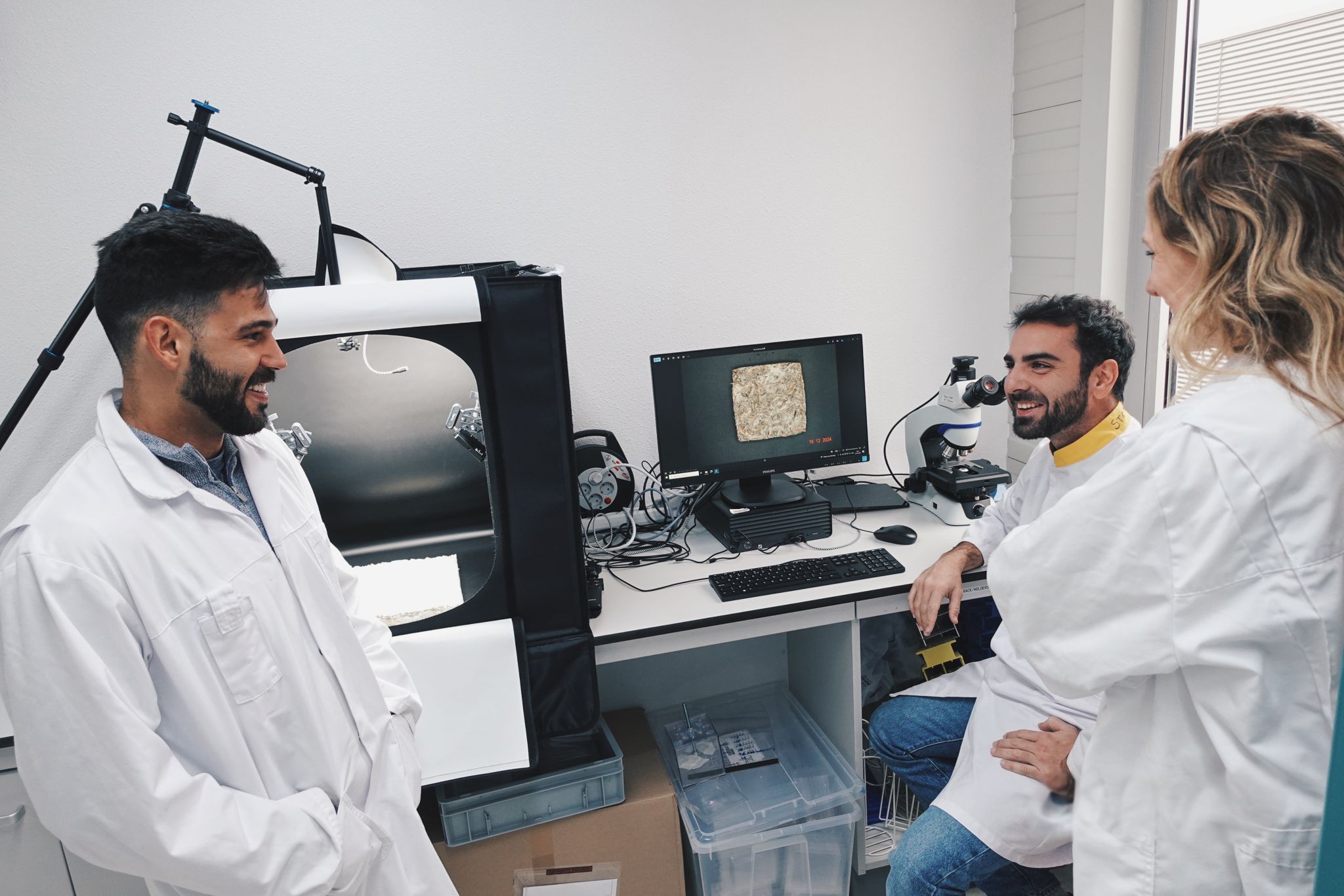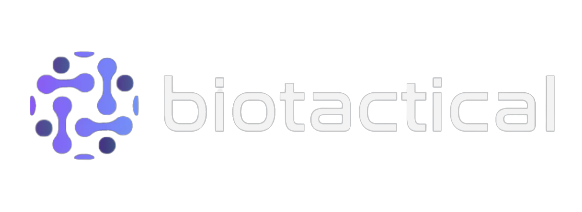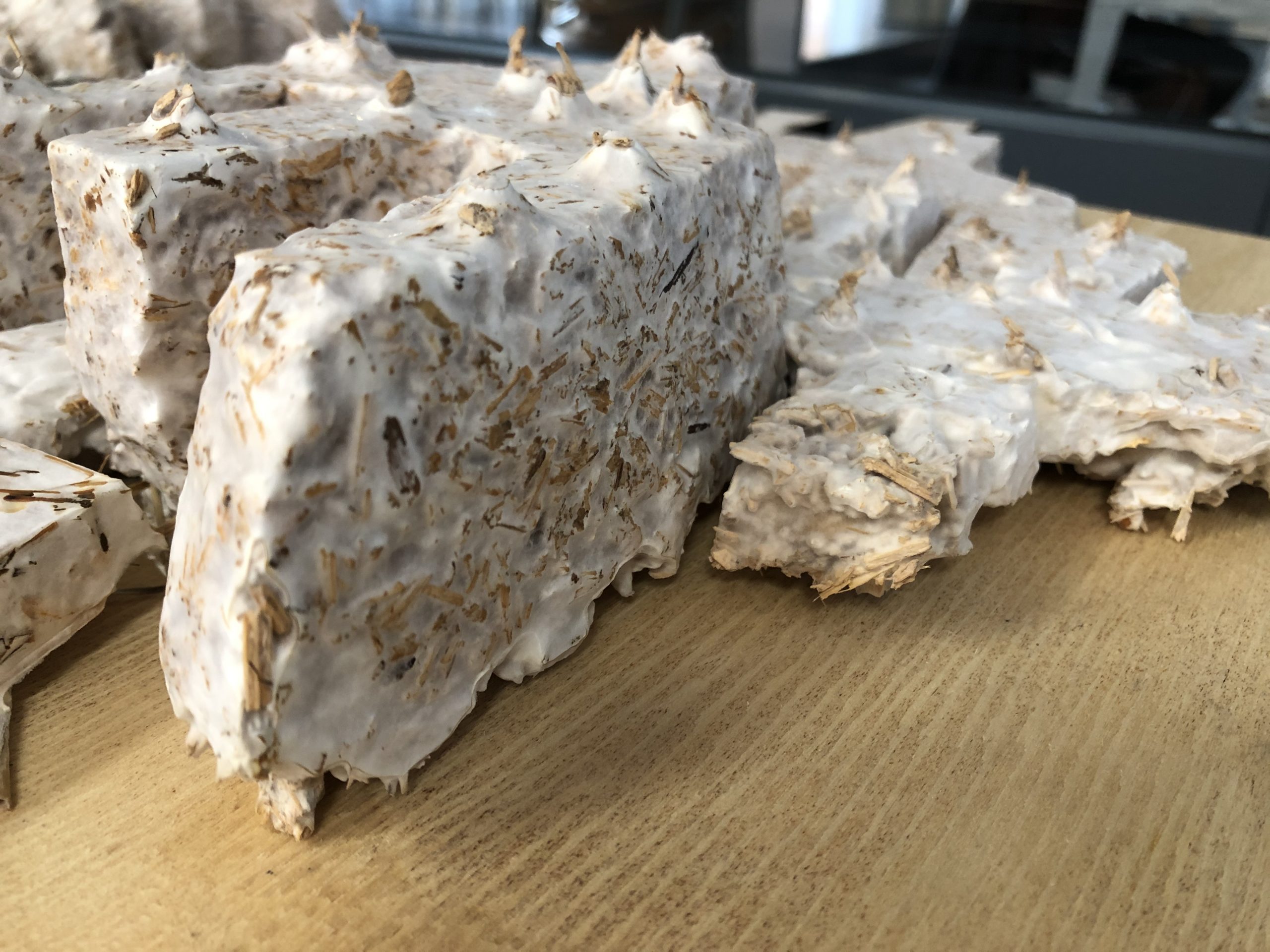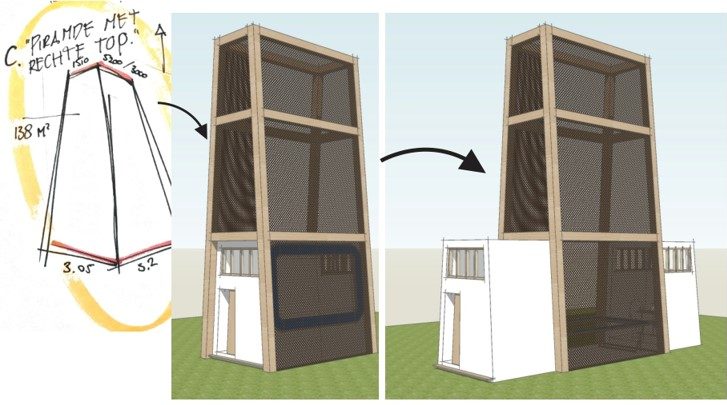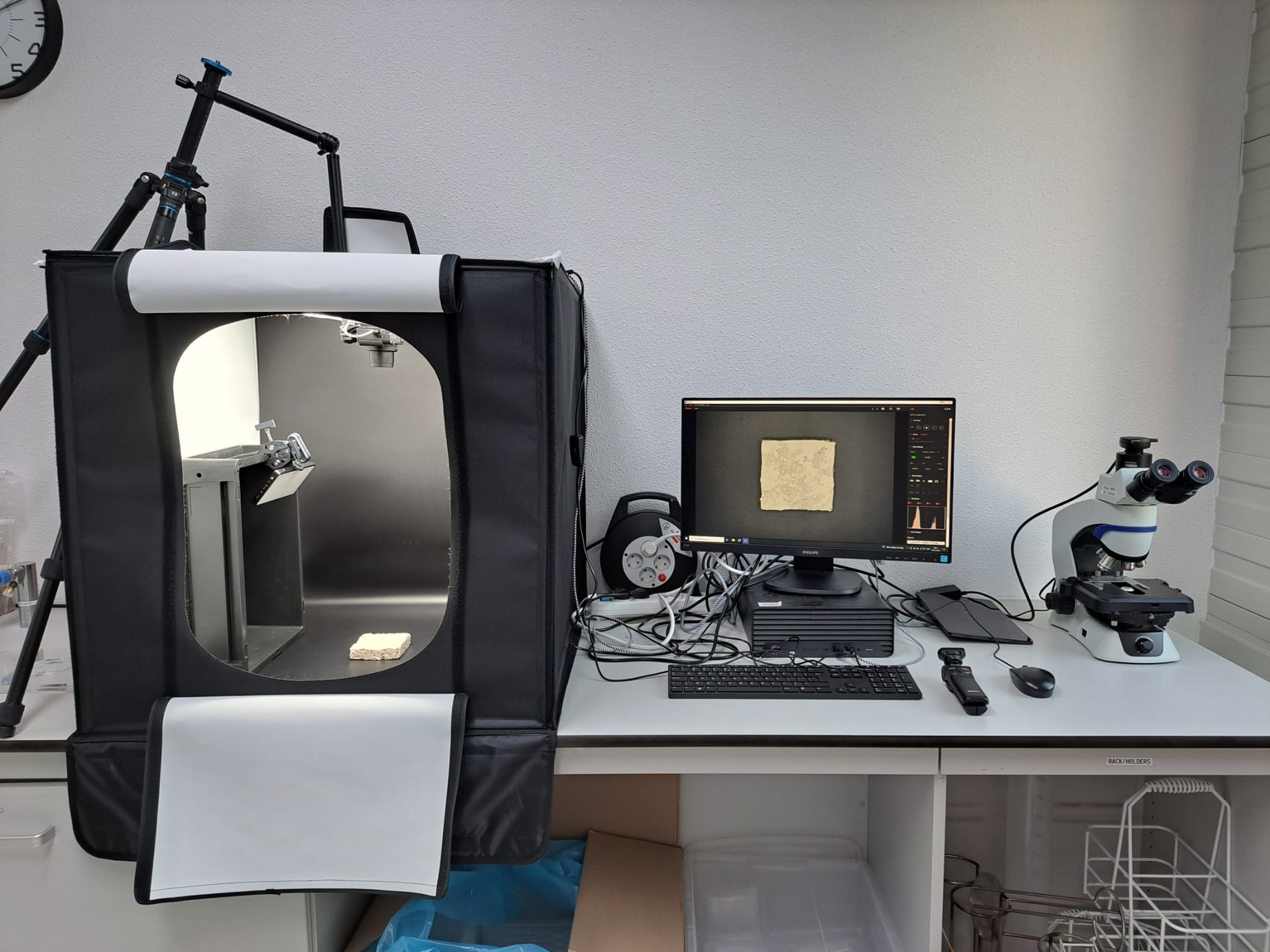
Smarter Quality Control with AI
In collaboration with Biotactical, MNEXT has initiated the FungAI project, which has developed an innovative AI system that automatically assesses mycelium growth. The system uses standardized image data and machine learning to determine whether a composite is fully developed or requires further incubation. This approach ensures consistent quality and saves valuable production time.
From Image Analysis to Material Prediction
In addition to quality control, FungAI is focusing on linking visual growth characteristics with the mechanical properties of MBCs. Based on extensive test data, the AI system can predict how strong or flexible the material will be. Future research will further increase the accuracy of these predictions by integrating Digital Image Correlation (DIC) and biochemical analyses.
Impact and future steps
Industry partner Biotactical is already using the technology to optimize the production of bio-composites. The consortium continues to work on refining the AI models and sharing knowledge within both education and industry. FungAI lays the foundation for sustainable, scalable, and data-driven production of biomaterials, making a significant contribution to a more sustainable future.
Collaboration and the Pre-Seed Fund
The FungAI project was made possible through the collaboration between the Biobased Bouwen lectoraat of MNEXT and the associate lectoraat Generative AI of the Perspective in Health lectoraat. This partnership strengthens the interdisciplinary nature of the project, bringing together knowledge from different domains to improve the production of mycelium bio-composites. The project is funded by the Pre-Seed Fund of Avans University of Applied Sciences, which supports small-scale, multidisciplinary research projects and helps lay the groundwork for larger collaborations and innovations. FungAI is an excellent example of how the Pre-Seed Fund fosters valuable connections between research, education, and practice, making a concrete contribution to the transition to sustainable materials.
September 2024 until February 2025




